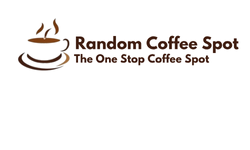Are Coffee Subscriptions Cheaper?

Coffee subscriptions have been gaining popularity among coffee enthusiasts and casual drinkers alike. With promises of fresh beans, curated blends, and convenience, they’ve become a go-to option for many. But are they actually cheaper than buying coffee from your local store or café? Let’s explore the economics, benefits, and potential drawbacks of coffee subscriptions to find out if they’re worth it.
The Appeal of Coffee Subscriptions
Coffee subscriptions offer a personalized approach to your daily brew. Whether you prefer single-origin beans, organic roasts, or specialty blends, subscriptions give you access to curated selections delivered right to your door. Many services even allow you to customize the grind size, delivery frequency, and flavor profiles to suit your taste.
Beyond the convenience, coffee subscriptions often promise fresher beans than those available on supermarket shelves. Many subscription services roast their beans just before shipping, ensuring optimal flavor. However, these premium features can come with a higher price tag, raising the question: do subscriptions actually save money?
Comparing Costs: Subscription vs. Store-Bought Coffee
1. Upfront Costs
The cost of a coffee subscription varies widely depending on the service, bean quality, and delivery frequency. On average, most subscriptions cost between $15 to $30 per bag, typically containing 12 ounces of coffee. For a daily coffee habit, a single bag might last 2–3 weeks, depending on your consumption.
In comparison, grocery store coffee often ranges from $8 to $15 per bag, though quality and freshness may not be on par with subscription beans. Additionally, specialty coffee from local roasters can cost $15 to $25 per bag, narrowing the price gap.
2. Cost Per Cup
A standard 12-ounce bag of coffee yields about 20–25 cups, depending on your brewing ratio. Here’s a rough breakdown:
- Subscription Coffee: $15–$30 per bag → $0.60–$1.50 per cup.
- Grocery Store Coffee: $8–$15 per bag → $0.32–$0.75 per cup.
- Specialty Café Coffee: $3–$5 per cup.
If you typically buy coffee from a café, subscriptions can offer significant savings. However, compared to store-bought beans, subscriptions are often pricier.
3. Hidden Costs
Subscriptions may include shipping fees, which can add $5–$10 per order unless free shipping is offered. On the other hand, store-bought coffee avoids this expense but may require a trip to the store, costing time and transportation.
The Perks Beyond Price
1. Quality and Freshness
One of the biggest advantages of coffee subscriptions is freshness. Most subscription services roast beans to order, ensuring you get the freshest coffee possible. Fresher beans mean better flavor and aroma, which may justify the higher cost for some.
2. Variety and Discovery
Subscriptions often introduce you to new roasters, blends, and single-origin coffees you wouldn’t find locally. For coffee lovers, the ability to explore unique flavors and regions is a major draw.
3. Customization
Many subscriptions allow you to tailor your order, from grind size to roast profile. This level of customization is rarely available with store-bought coffee, adding value for those with specific preferences.
Who Benefits Most From Coffee Subscriptions?
Coffee subscriptions can be a great fit for:
- Home Brewers: If you consistently brew at home and prioritize quality, subscriptions can elevate your experience.
- Explorers: Adventurous drinkers who enjoy discovering new coffees will appreciate the curated selections.
- Busy Individuals: Subscriptions eliminate the need for store trips, saving time and effort.
However, if you’re budget-conscious or satisfied with your local store’s offerings, the added cost of a subscription might not be worth it.
Tips to Maximize Savings on Subscriptions
- Choose Bulk Delivery: Opt for less frequent, larger deliveries to save on shipping costs.
- Use Discounts: Many subscription services offer discounts for first-time users or long-term commitments.
- Compare Services: Shop around to find a subscription that matches your taste and budget.
- Cancel When Needed: Pause or cancel your subscription if your coffee stockpile grows too large.
Conclusion
So, are coffee subscriptions cheaper? The answer depends on your priorities. While subscriptions may not beat store-bought coffee on price alone, they offer unparalleled freshness, quality, and convenience. For those who value these perks, the slightly higher cost is often worth it.
On the other hand, if budget is your main concern, store-bought coffee remains the most affordable option. Regardless of your choice, the key is to find what works best for your lifestyle and coffee preferences. After all, coffee is about enjoyment—whether it’s a subscription box delivered to your door or a bag picked up from your favorite local roaster.
Happy brewing!
